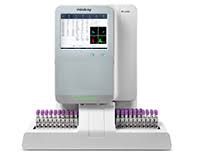Viral Markers

A viral marker blood test are used to identify whether a donated blood carries any active infection like: HIV, HTLV, Hepatitis B & C etc. A viral test is done to find infection-causing viruses.
What is Viral Marker?
Viral Hepatitis has been recognized as a serious public health problem in India by the World Health Organisation (WHO). Viral Hepatitis is caused by Hepatitis virus A to E with Hepatitis A,B and C constituting the majority of cases. This is due to the increase in the incidence of intravenous drug abuse, sharing of needles and unsafe sex. A more serious concern is that most people infected with the virus are unaware of it. We at 1mg care for you and your health. Therefore, on the occasion of World Hepatitis Day, we have come up with a unique one of its kind package which will screen you against the three most common types of Hepatitis Viruses i.e. A, B and C. So, get yourself tested today before its too late. Remember Prevention is always better than cure.
Why is Viral Marker done?
- 1. If you have signs or symptoms suggesting acute hepatitis like jaundice, loss of appetite, nausea, vomiting, abdominal pain, fever or dark urine which might be due to Hepatitis B Infection.
- 2. If you have signs or symptoms of chronic hepatitis which might indicate hepatitis C infection.
- 3. If you are pregnant.
- 4. If you have been in close contact with someone infected with Hepatitis B, C or HIV.
- 5. If your health care practitioner is suspecting HIV infection.
- 6. If you are on long term dialysis.
- 7. If you have ever injected illegal drugs.
Interpretations
• A negative HCV antibody test indicates no infection with hepatitis C virus while positive or indeterminate HCV antibody test with negative HCV RNA signifies past infection. If both HCV antibody and HCV RNA are positive, it indicates current infection with Hepatitis C virus.
• A negative test for HIV antigen or antibody usually indicates no infection with HIV virus while if both screening and confirmatory tests are positive, it usually signifies HIV infection.
• A positive Hepatitis B surface antigen (HBsAg) and a positive Hepatitis B envelope antigen (HBeAg) indicates active infection with the virus.

